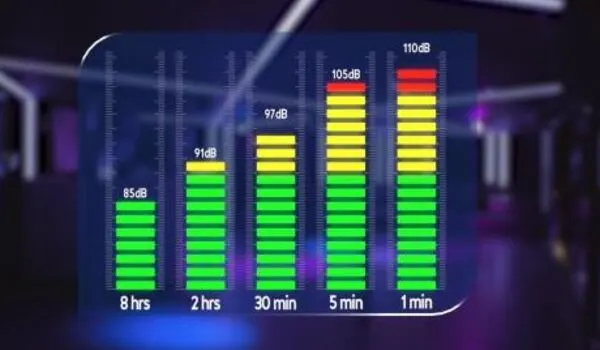It is true that even minor traffic noise can have a negative influence on work performance and overall cognitive function in some people. Noise, especially when it is unpredictable or uncontrollable, can be a cause of distraction and stress, leading to lower concentration, more errors, and decreased productivity.
As cities continue to densify, there is increasingly building quite close to roadways and thoroughfares. Noise is previously known to have a harmful influence on human health, but recent research shows that as little as 40 decibels of traffic noise – the normal amount of background noise in an office or kitchen – has a deleterious effect on cognitive performance.
Chalmers’ Division of Applied Acoustics researchers conducted a laboratory investigation in which test subjects were subjected to concentration tests while being exposed to background traffic noise. The individuals were asked to stare at a computer screen and respond to specific letters before rating their perceived workload. According to the study, the individuals performed much worse on the performance test and felt that the task was more difficult to complete with road noise in the background.
The audio sequence simulating the closer passages, where the sound changes significantly as the vehicle passes by, was usually the one that bothered the test subjects the most. This could be because traffic that is further away is perceived as a more constant drone.
Leon Müller
“What is unique about our study is that we were able to demonstrate a decline in performance at noise levels as low as 40 dB, which corresponds to the regular noise level in an office environment or a kitchen,” says Leon Müller, PhD student at the Division of Applied Acoustics in the Department of Architecture and Civil Engineering.
The background noise was made up of two audio sequences that simulated vehicles going by at ten and fifty meters. Both sequences were normalized to the same indoor total level of 40 dB.
“The audio sequence simulating the closer passages, where the sound changes significantly as the vehicle passes by, was usually the one that bothered the test subjects the most,” Müller says. “This could be because traffic that is further away is perceived as a more constant drone.”

Housing is built closer to roads now
The latest findings highlight an already troubling scenario in which traffic noise has a deleterious influence on health and job performance. The distance between roadways and newly built housing in Swedish cities has been allowed to shorten in recent years, a trend that can also be seen elsewhere.
Simply said, the Swedish standards for where development is authorized are based on the average outdoor noise level over a 24-hour period, which means that individual pass-bys are not taken into account. Furthermore, present restrictions do not address the peaks of low-frequency noise indoors, which are harder to avoid and, according to research, are more disruptive and so have a greater impact on human health.
In one study modelling low-frequency noise, Jens Forssén, Professor of applied acoustics at Chalmers, showed that such noise is primarily generated by heavy traffic at low speeds, and is difficult to shut out even with well-insulated windows and buildings that comply with all the construction norms and guidelines for sound insulation.
Reduced vehicle speed can increase the noise exposure indoors
“The calculations for various types of facades show that it is difficult to achieve ideal indoor sound environments near heavily trafficked roads,” Forssén explains. “Reducing speeds is not a solution, as our calculations show that the indoor noise exposure can even increase at lower speeds.”
Furthermore, Forssén claims that noise and the sound environment are frequently overlooked throughout the design process, and that there are benefits that could be realized if adjustments were made to better utilize the space in terms of noise pollution. The researchers also agree that the most effective option would be to minimize urban densification in regions where traffic noise would have a negative impact on health and well-being.





